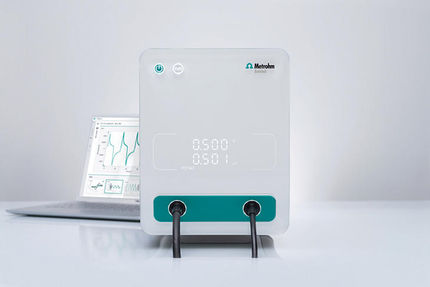To use all functions of this page, please activate cookies in your browser.
my.chemeurope.com
With an accout for my.chemeurope.com you can always see everything at a glance – and you can configure your own website and individual newsletter.
- My watch list
- My saved searches
- My saved topics
- My newsletter
Microsatellite instabilityMicrosatellites are repeated sequences of DNA. Although the length of these microsatellites is highly variable from person to person, each individual has microsatellites of a set length. These repeated sequences are common, and normal. The most common microsatellite in the humans is a dinucleotide repeat of CA which occurs tens of thousands of times across the genome. Product highlight
In cells with mutations in DNA repair genes, however, some of these sequences accumulate errors and become longer or shorter. The appearance of abnormally long or short microsatellites in an individual's DNA is referred to as microsatellite instability. Microsatellite instability (MSI) is a condition manifested by damaged DNA due to defects in the normal DNA repair process. Sections of DNA called microsatellites, which consist of a sequence of repeating units of 1-6 base pairs in length, become unstable and can shorten or lengthen. Microsatellites are also known as simple sequence repeats (SSRs). MSI is a key factor in several cancers including colorectal, endometrial, ovarian and gastric cancers. Colorectal cancer studies have demonstrated two mechanisms for MSI occurrence. The first is in hereditary nonpolyposis colorectal cancer (HNPCC) or Lynch Syndrome, where an inherited mutation in a mismatch-repair gene causes a microsatellite repeat replication error to go unfixed. The replication error results in a frameshift mutation that inactivates or alters major tumor suppressor genes - key genes in the regulation of the cell cycle and, ultimately, the prevention of cancer. The second mechanism whereby MSI causes colorectal cancer is an epigenetic change which silences an essential mismatch-repair gene. In both cases, microsatellite insertions and deletions within tumor suppressor gene coding regions result in uncontrolled cell division and tumor growth. Five markers have been recommended by the National Cancer Institute to screen for MSI in HNPCC tumors (often called Bethesda markers). Generally, MSI detection in two of the markers is considered a positive result or high probability of MSI (MSI-H). Recently, Promega® Corporation released a microsatellite instability assay called MSI Analysis System. The kit includes five mononucleotide markers which were chosen for their sensitivity and specificity. |
| This article is licensed under the GNU Free Documentation License. It uses material from the Wikipedia article "Microsatellite_instability". A list of authors is available in Wikipedia. |







